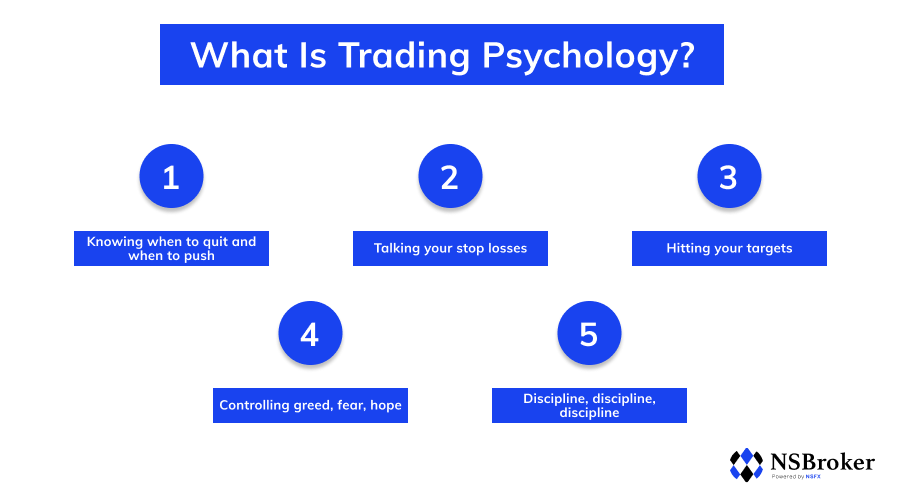Keeping a Cool Head: How to Overcome Your Emotions in Forex Trading

Where does greed come from?
The phase of popularity through which trading passes today is undoubtedly beneficial for the development of the sphere. At the same time, it has a downside: inflated expectations and unrealistic ideas about the trading process. The popularization of trading through the narratives of quick success and incredible earnings in the short term has pushed many people to a distorted perception of this area. Now, a significant percentage of newcomers expect that they will be able to quickly and easily earn huge sums of money without effort, relying purely on luck and good fortune.
In this state of mind, it is easy to lose your head from the first profits (which can really be the result of one-time luck) and fall into the abyss of greed. It encourages people to strive to increase their profits all the time, not appreciating the intermediate results, not being satisfied with what has been achieved, and not taking into account any risks or other factors that affect the trading process. And while many may argue that this characteristic is rather individual, affecting particular persons, it is still possible to follow a recurring pattern of its manifestation in many novice traders.
Greed leads to numerous negative consequences for traders. It makes them take risks, forgetting about warnings and strategy. Greedy traders want to get everything at once, putting gains at stake to get more. They are nervous and lack sufficient self-control to adequately develop and implement an action plan in certain situations. Thus, it has a significant deterrent effect on Forex trading. Because of this fact, it is critical for traders to identify greed in its earliest manifestations and overcome it in a timely manner.
How does greed manifest itself?
In the earliest stages, greed can be spotted by a number of symptoms manifested in the trader. They include the following features:
- Unfounded hopes. This phenomenon indicates the trader's hopes that are not sufficiently grounded and, as a consequence, unrealistic. In trading, it is always important to base the expected market conditions and the desired outcome of the transactions on certain objective arguments, such as forecasts and analysis. Greed-driven traders miss this aspect, which often makes their hopes impossible to achieve. For example, when placing an order, such a trader can wait until the price reaches a certain level that they expect. However, when the situation is the opposite, they do not take measures to save their deposit but continue to expect that the dynamics of the asset's value will change, dooming themselves to losses.
- Unrealistic expectations. Like the previous symptom, this one is also associated with a distorted perception of reality and ignoring prognostic and analytical factors. However, if unfounded hopes are inadequate in particular circumstances, unrealistic expectations usually relate to certain consequences that are simply impossible to achieve in the way the trader wants. For example, traders driven by greed can expect huge profits in the first weeks spent in the market. Such people often tend to neglect the practice on the demo account, trying to get to real trading as soon as possible and, as a result, making numerous mistakes that could be easily avoided.
- Lack of self-control. When greed obscures traders' minds, they become prone to making rash and impulsive decisions. Rationalism and logic in approaches to solving problems are the main guarantees of effective trading. Patience is also an extremely important trait that allows individuals to wait for the ideal market conditions and use them to their advantage. In the absence of self-control, all these factors recede into the background, giving way to instantaneous impulses and emotions. Traders guided by these determinants will never be able to succeed in their profession. Moreover, without controlling their own decisions, they take unjustified risks, jeopardizing all real profits for the ephemeral chance of getting more.

How to keep your greed under control?
There are many methods to control greed in everyday life. When it comes to trading, at least a few key techniques can be used. They are as follows:
- Develop personal trading rules and follow them under any circumstances. Do not deviate from the principles you have set for yourself and the strategy created on their basis. Make any decisions within this framework, prioritizing it over emotional reactions.
- Monitor and be aware of your emotions. In order to overcome greed, as well as other emotions that can negatively affect your success in trading, it is important to first be aware of their existence. Identify the factors that generate certain emotional reactions on your part and analyze why you respond to them in this way. In the future, try to anticipate the emotions caused by such situations and keep them under control.
- Use risk management techniques. To do this, first determine how much of your available funds you can risk. Do not exceed this amount of money in your trading operations. Also, use the Stop Loss command to minimize your losses when the market behaves differently than you originally predicted. Besides, a Take Profit order can help you overcome greed by taking money earned when its sum reaches a certain mark, depriving yourself of the risk of losing profit if market dynamics turn sharply in the opposite direction.
- Create a trading diary and keep it regularly. There, you should write about the planned operations with a substantiation of the factors because of which you want to carry them out. In this way, streamline your trading process and get rid of the impact of immediate impulses on your decisions.
Final words
Greed is one of the most detrimental emotions for a trader. It hinders rational decision-making, reduces a person's self-control, and forces the trader to take unjustified risks in pursuit of unrealistic expectations. By following the list of strategies described above, you will be able to minimize the impact of this factor on your performance and ensure the highest trading efficiency for stable profits.









